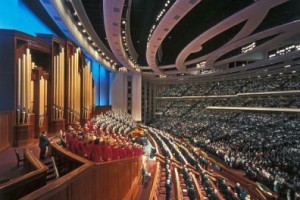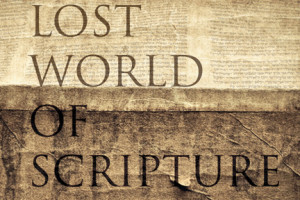Dr. Albert Mohler, President of the Southern Baptist Theological Seminary, posted an article last week on his website entitled, “What Makes Evangelicalism Evangelical? A New Book Joins the Argument.” The article was adapted from an essay he wrote for a new collaborative book on the spectrum of evangelicalism. The article gives a brief history of evangelicalism as a movement, helping us to understand what the term means and how it’s been used throughout history. As Mohler details, the term has been applied to a number of different groups since it’s advent in the early eighteenth century. Even today it’s applied to quite a broad range of people. All of this raises the question, how useful is the term “evangelical” today?
As the 2012 election cycle continues to ramp up, the term will be used to define a demographic of voters presidential candidates will have to try and sway in order to get elected. Political discussion is perhaps the context in which the term is most frequently used. Here it generally denotes non-Catholic Christians who tend to vote conservatively on social issues. The term can also simply refer to a conservative Protestant who is neither theologically liberal nor Roman Catholic. In both of these senses the term is helpful in making key distinctions, yet broad enough that some would bristle at its use being applied to them.
The term “evangelical” may be useful in distinguishing a group of people in a broad, general context like a political demographic or a group within Christendom, but perhaps less useful in other settings. If one seeks to summarize what their religious beliefs are by use of a label, “evangelical” may not be specific enough. After all, the same term can apply to those who are reformed and those who are charismatic, those who are Methodist and those who are Presbyterian.
If you read Mohler’s article or are familiar with the historical uses of the term, you know “evangelical” has been applied to those who wished to distinguish themselves from Fundamentalists and Liberal Protestants, to Methodists during the eighteenth century, and to low church Protestants in Great Britain in the nineteenth century, among others. We begin to understand the seventh Earl of Shaftesbury whom Mohler quotes in his article who declared, “I know what constituted an evangelical in former times…I have no clear notion what constitutes one now.”
My initial assessment is that the term can be helpful in certain contexts. In conversation about church or doctrine with someone who is Roman Catholic I’ll identify myself as evangelical. If the term is used the way in which Merriam-Webster defines it—“emphasizing salvation by faith in the atoning death of Jesus Christ through personal conversion, the authority of Scripture, and the importance of preaching as contrasted with ritual”—then I’m eager to accept the label. But when given the opportunity I’m glad to expand on what exactly I believe as I realize most understand the term more broadly. I know that some whom others would describe as evangelical prefer not to adopt the moniker at all.
The question I asked in the first paragraph remains: With all of the various ways in which it is applied, how useful is the term “evangelical”? I’m curious to hear what readers think. Do you identify yourself as an evangelical? Do you use the term to describe others? If not, what term do you prefer? I’m eager for your feedback.





2 Comments
Leave your reply.